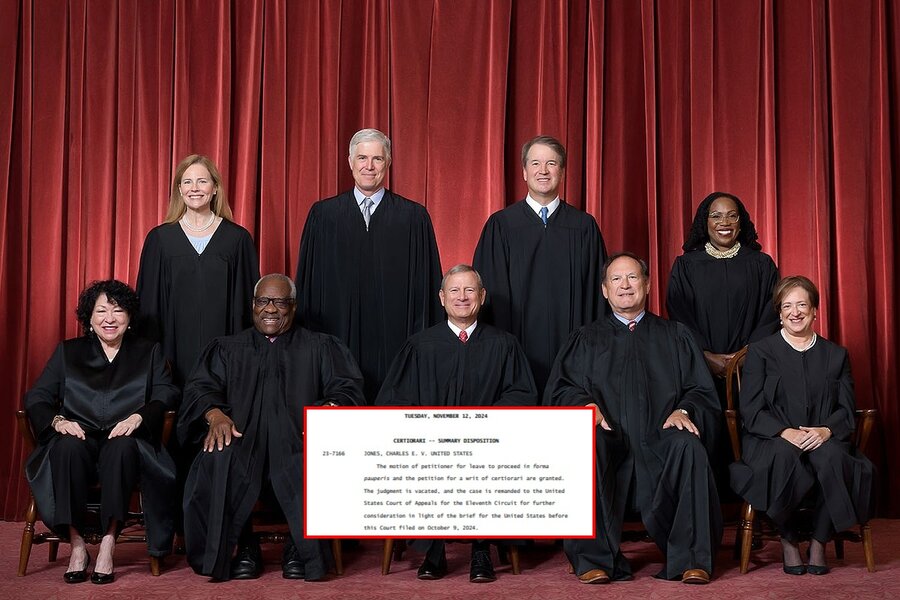The U.S. Supreme Court on Tuesday declined to consider a challenge to a misdemeanor charge that was used to target Jan. 6, 2021, defendants for parading at the U.S. Capitol.
With no noted dissents and without providing a reason for its decision, the Supreme Court denied certiorari to take up an appeal from John Nassif, a Jan. 6 defendant who challenged a law that bars “parading, picketing, and demonstrating” at the U.S. Capitol. He argued in court papers submitted to the high court that his First Amendment rights were violated under the statute.
Nassif, of Florida, was convicted of four misdemeanor counts in connection to the breach at the Capitol and received a 7-month prison term, according to the Department of Justice (DOJ).
Prosecutors alleged that he was yelling, “Whose house? Our house!” before he went inside the Capitol building and suggested that other protesters join him inside.
He appealed the “parading, picketing, and demonstrating” count, which was used to charge numerous other individuals arrested by federal officials in connection to the breach, according to the DOJ.
However, the U.S. Court of Appeals for the District of Columbia Circuit rejected his arguments in April, with a three-judge panel writing that Capitol buildings are not a public forum that can be used for demonstrations.
Nassif, the judges wrote at the time, “has not established that the Capitol buildings are, by policy or practice, generally open for use by members of the public to voice whatever concerns they may have—much less to use for protests, pickets, or demonstrations.”
“Because Nassif has not shown that the Capitol buildings are a public forum, the challenged provision need only be reasonable in light of the government’s interest in undisturbed use of the Capitol buildings for their legislative purposes,” the circuit court judges said. “We conclude that the prohibition is reasonable and that it clearly applies to Nassif’s conduct, so we reject his facial challenges and affirm the conviction.”
In his petition to the Supreme Court, Nassif’s federal defender, Melissa Fussell, noted that the law in question, 5104(e)(2)(G), “criminalizes protected expression that bears no resemblance to the conduct that has made that day infamous” despite it being connected to the events around Jan. 6, 2021.
“The overbreadth of the law was a concern from the start,” Fussell wrote, noting that the law was passed in 1967 during the Civil Rights movement.
While the law “has been used against hundreds of January 6 defendants who clearly violated the larger statutory scheme,” its origin “can be traced, at least in part, to a desire to silence particular viewpoints,” his petition stated.
“A peaceful sit-in by the Freedom Democratic Party of Mississippi—the group supported by Dr. Martin Luther King Jr. and formed during Freedom Summer—was cited as a reason such far-reaching legislation was needed to ‘protect the Capitol.'”
More than 1,500 people have been charged in connection with the Capitol breach, according to statistics from the DOJ.
President-elect Donald Trump has vowed to pardon some individuals who were convicted of Jan. 6-related crimes.
Share your thoughts by scrolling down to leave a comment.













